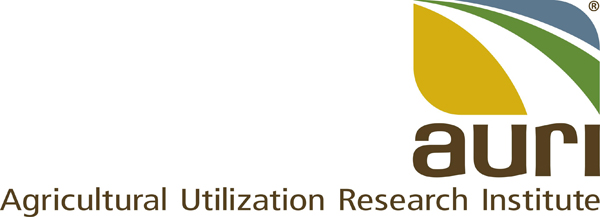By AURI
To help readers understand this new position, can you share some of your duties and goals in this new role?
I will focus on the intersection of new product/process development and climate resilient solutions to add value to agricultural crops and products. I intend to serve as a resource and connector for value chain participants, from growers to processors, who wish to develop markets for emerging crops. Consumers desire more sustainable products and transparency and this role builds on that trend by assisting in the value creation of crops and practices that help build soil health in tandem with conventional cropping systems or row-crop production. In doing so, my goal is to be inclusive of all Minnesota entities interested in adding value to their operations via novel supply chain development.
Since this is a new position, what is your vision for it?
My vision is to learn about existing infrastructure and value chain actors who aim to capture a place in the exciting emerging markets for perennial and alternative annual crops such as those being developed by The Land Institute and UMN’s Forever Green Initiative. These crops can be incorporated to add a third crop to a two-year rotation, diversifying cropping systems – which reduces risk and adds income, improves soil health, sequesters nutrients and carbon, and improves water quality. By accelerating the supply chain development for new crops and valuable quality traits, I hope to help improve the long-term health of a farming operation and its surrounding ecosystem. In addition to the value captured by diversifying traditional farming operations, new standards are being developed to pay
growers for these ecosystem services – on top of the market prices they receive for growing these grains. My role will be to also understand the fluctuations and changes in these emerging opportunity areas, to build networks of peers and actors along the value chain, and to build best practices that de-risk entering these new markets.
What current programs do you oversee and how will this new position benefit AURI, its clients and the state of Minnesota?
As part of the Commercialization team at AURI, I will assist on grants and programs that support the formulation of markets for novel crops and quality traits. Many novel crops are currently in a critical development phase – some of which have already begun to see action in fields and in product development – and include perennial grains such as Kernza®; winter hardy annual “cash cover crops” such as winter camelina, pennycress, winter barley, and winter hybrid rye; perennial oilseeds such as perennial flax and silphium; agroforestry crops such as hybrid hazelnuts and elderberries, improved common winter annual cover crops such as hairy vetch, and winter rye; and perennial forage legumes such as kura clover and alfalfa.
I will also be a value chain connector to explore solutions to constraints that accelerate adoption of new market spaces
How can supporting improving novel supply chains benefit Minnesota?
Minnesota’s history as the flour milling epicenter during the second Industrial Revolution made it an epicenter for the first 50+ years of the U.S. food system. By innovating and commercializing novel crops, we will move that legacy forward with an eye to sustainable agricultural approaches that provide food and agricultural food products for a growing population during another critical moment in history where the planet’s natural resources are experiencing stress. However, solutions require a supply chain approach – growers and the market itself cannot spur these important changes without also incorporating other supply chain entities to incentivize and promote these new agricultural technologies.

